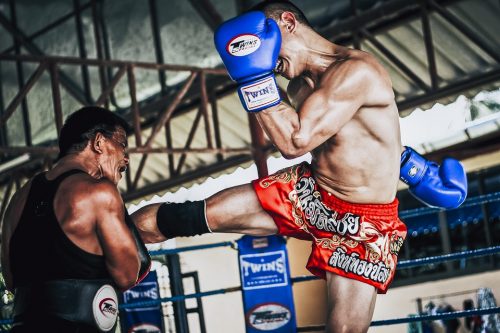
Muay Thai is a medieval martial art that started as a battlefield fighting tactic and later evolved into today’s popular combat sport. The formalisation of the art into a competitive sport came with rules, making it somewhat less brutal than its original format.
Here are things you need to know about Muay Thai before you start training.
It is Challenging
Although it takes effort to master most martial arts, Muay Thai requires more resilience and dedication. In addition, learning the basics takes a toll on your body, and there are more suitable combat options for beginners.
The first few days can be challenging and discouraging. You will get so tired that sleep won’t come quickly after getting home. Muscle soreness will be the norm. However, if you stay resilient, your body and mind will acclimatize, and everything else becomes easy.
Unless you enjoy pushing yourself to the limits, don’t take Muay Thai lessons as your first martial arts training course.
You Need Proper Gear
Muay Thai doesn’t have a strict dress code, but it’s advisable to wear comfortable clothing. Anything you would wear to the gym works well. However, wearing specialist Muay Thai shorts offers more comfort and allows free limb movement.
Besides shorts, you also need proper gloves. Gloves protect your knuckles against injury when practising punching and defensive techniques. They also reduce the impact on your opponent during sparring sessions.
Ankle supports are also common in Muay Thai training, with pros and amateurs wearing them. They support and protect the ankles but aren’t mandatory. If you experienced sprains and tension around your ankles and heels on your first session, consider wearing these supports.
You don’t need shoes for Muay Thai training since it happens on cushioned mats. Regardless, it helps to carry a pair of running shoes because some gyms encourage fighters to run before every session to boost endurance.
You Must Eat Proper Food
Athletes must eat proper foods to fuel their bodies. Muay Thai training is intensive and requires you to consume a balanced diet consisting of carbs, fats, proteins, fruits, and vegetables. Try to avoid eating junk and processed foods that don’t add nutritional value and can hurt your performance.
Besides food, you must drink plenty of water. Water lubricates the joints, helping to reduce muscle soreness and facilitating quick recovery after training. It also delivers oxygen throughout the body and eliminates toxins from your cells. Lastly, it keeps you hydrated and maintains normal body functions.
It’s also advisable to take pre-workout supplements before training sessions. For example, drink a chocolate malt beverage an hour earlier for a quick energy boost and consume creatine 30 minutes before lessons to improve endurance. After training, drink a lot of water to prevent dehydration side effects such as headaches, sleeplessness, and fatigue.
The Rules
Muay Thai, is also know as the art of eight limbs because fighters use fists, elbows, knees, and legs to strike the opponent. Before the sport’s modernisation, headbutts were allowed, making it the art of nine limbs.
If you want to see the sport in its pure form, attend the Bama Lethwei, where Thai fighters compete with Burmese opponents. Despite the rules favouring the latter, Thais often win because of the advanced techniques employed in modern Muay Thai.
Should You Bow?
It’s common to see fighters bowing before starting a martial arts match. Many westerners try to emulate this during Muay Thai sessions but often end up doing it wrong.
Bowing, known as ‘Wai’ in Thailand, is a show of respect. However, you must execute it when needed to make it meaningful. The correct times to perform the Wai are when someone bows to you, when being introduced to a crowd, or when meeting a respectable individual. Refrain from bowing to your juniors; don’t expect seniors to return it, especially monks.
Final Words
Muay Thai is one of the most practical martial arts. Unlike Karate and Taekwondo, which emphasise feints, distractions, and body movements, Muay Thai teaches straightforward, hands-on combat.
When confronted, you don’t have time to recollect yourself and assume a particular stance – it teaches you to beat the opponent and save yourself from the fight. This no-nonsense approach is helpful if you want to improve your self-defence skills.
Interesting Related Article: “12 Ways That Boxing Benefits You“
